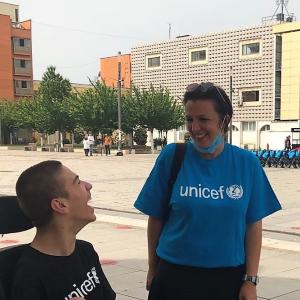Return to (New) Normal
09 March 2021
Return to (New) Normal: Lessons and results from the British Embassy and UN support towards strengthening health and education sectors in the wake of COVID-19
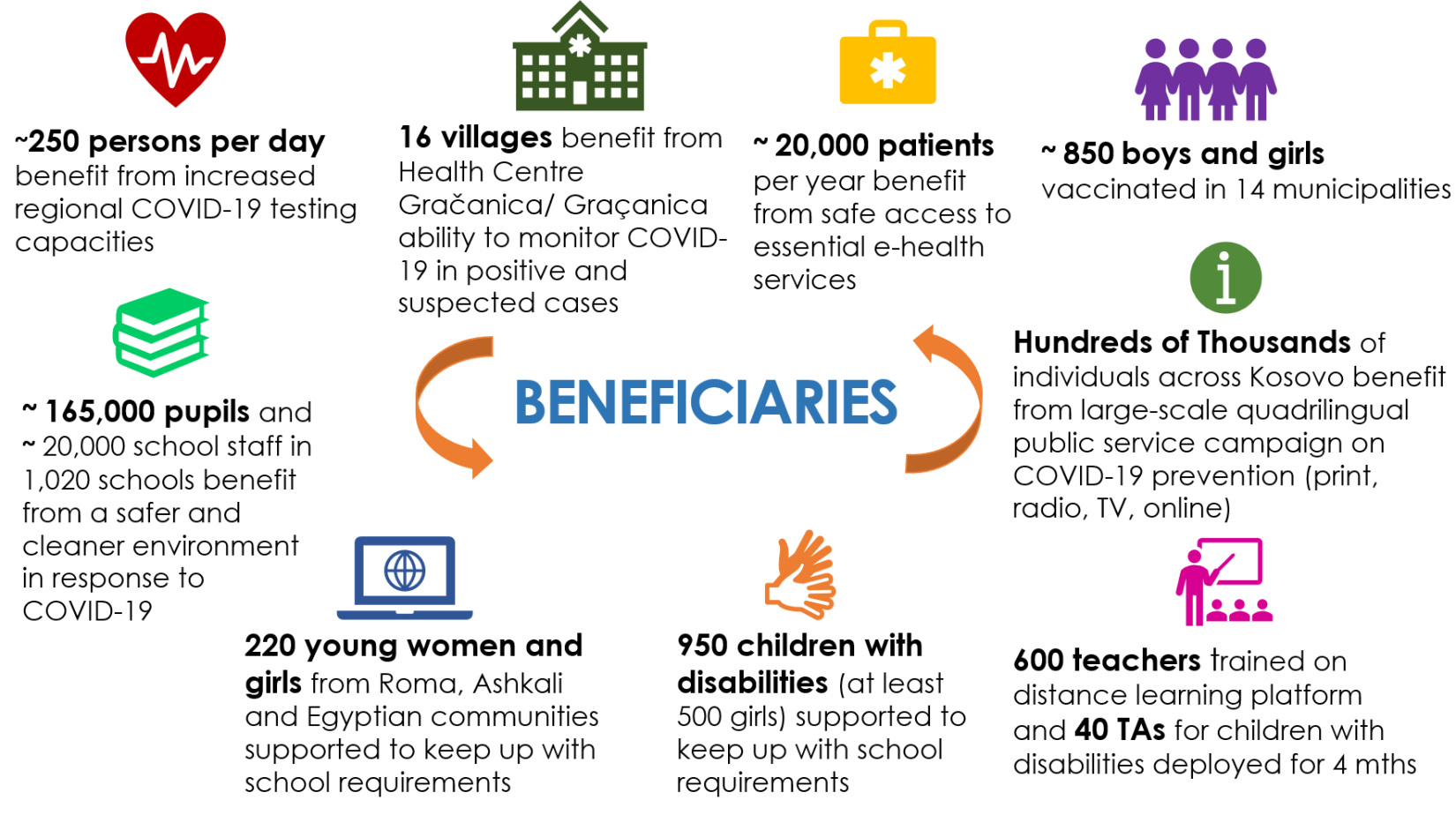
When the COVID-19 pandemic hit Kosovo little over one year ago, Senada Gashi saw her life upended by COVID-19-related school closures. Like many other children in her community and in Kosovo, she had no access to Internet-enabled devices to benefit from other learning opportunities. Over the last year, school closures caused by the COVID-19 pandemic in Kosovo have had a considerable impact on more vulnerable groups, such as children, young women and girls, particularly those from non-majority communities and with disabilities. On the other hand, Kosovo’s healthcare facilities have been facing growing demand for testing and equipment, particularly at regional level.
As Kosovo continues its recovery process and reopens for business, the British Embassy in Pristina and the United Nations have been joining forces to implement an ambitious project aimed at a series of targeted health and education interventions, with a view to aid Kosovo’s recovery from the first wave of COVID-19 and reduce vulnerability to future waves. “It is our role as partners to support Kosovo at a moment of crisis and contribute to increase its resilience to future waves, particularly for the most vulnerable ones” highlighted the British Ambassador Nicholas Abbott.
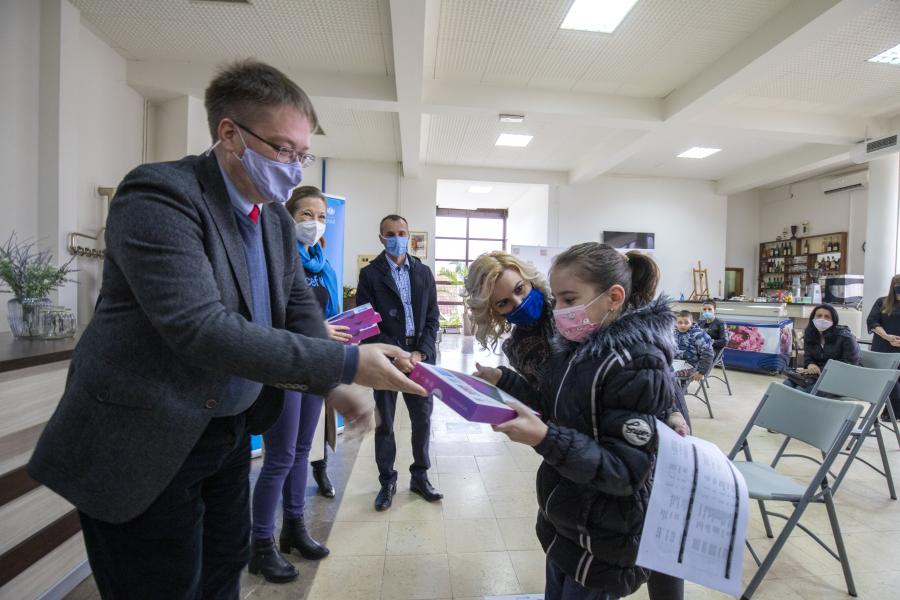
To achieve these objectives, the project “Return to (New) Normal in Kosovo: Strengthening resilience through a safe and inclusive return to normality in health and education in the wake of COVID-19” is applying an intersectional approach to reach particularly those left furthest behind. “I accompanied my son for six years to his classroom at the cost of leaving my job. This is the first time my son has ever received dedicated professional teaching assistance thanks to UK and UNICEF” remarked Ilmije Hyseni, mother of a disabled son. Ilmije’s situation, like many other children and families in Kosovo, highlights the importance to leverage collective efforts to support those most in need, in line with the principle of Leave No One Behind.
Over a timeframe of only six months, the project will reach over 165,000 pupils and 20,000 school staff in 1,020 schools, who will benefit from a safer and cleaner environment in response to COVID-19. In addition, about 250 persons per day and about 20,000 patients per year will benefit respectively from increased regional COVID-19 testing capacities and from safe access to essential e-health services.
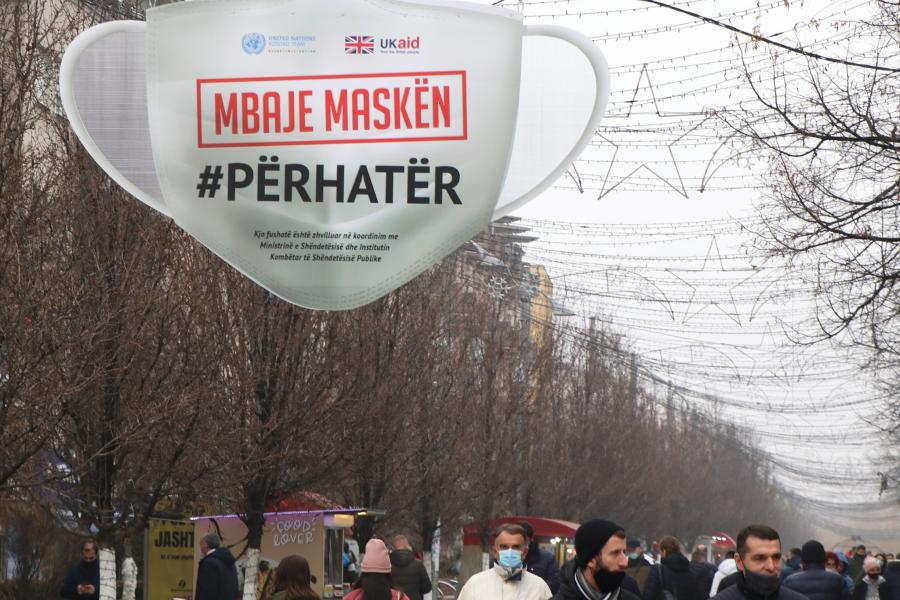
Follow LINK to watch the opening ceremony of the #ForTheSakeOf Campaign.
Since the launch of the project, more than 1,000 schools have already been provided with hygiene kits and over 3,000 teachers have received COVID-19 protection kits. In addition, 950 children with disabilities and 220 girls at risk of falling behind received tablets or laptops. In addition, the project has been promoting the safe and healthy re-opening of schools by supporting key institutions through targeted technical assistance and by ensuring compliance with COVID-recommendations in schools.
In the health sector, the project has been contributing to strengthening regional COVID-19 detection capacities by supporting the establishment of two regional laboratories in Prizren and Gjilan/ Gnjilane and mobile x-ray facilities in Gracanica/Graçanica. To raise awareness about COVID-19 and promote hygiene behaviours that protect against infection, the project has supported the delivery of reliable COVID-19 messaging and preventative measures through Kosovo-wide campaigns, focusing particularly on the use of online and digital platforms to reach different segments of Kosovo society.
Additional, non-COVID related areas covered by the project include successful support to the maintenance of essential health services, including e-services available via phone or the internet as well as reinforced immunization programmes for children and adolescents. “We believe that virtual consultations will significantly reduce the number of physical visits. They will improve access to health care, quality and efficiency, and support overworked medical staff.” Dr. Sami Uka, CEO Main Family Medicine Centre in Pristina.
Developed in consultation with the ministries of health and education, the $2.5 million project is implemented by UNFPA, UNICEF, UN Women and the World Health Organization between October 2020 and March 2021. “By bringing together the capacities of four implementing agencies, the project has helped address key challenges in a more comprehensive and complementary way” remarked UN Development Coordinator Ulrika Richardson. The project is funded by the British Embassy through the UN’s COVID-19 Response and Recovery Multi-Partner Trust Fund.
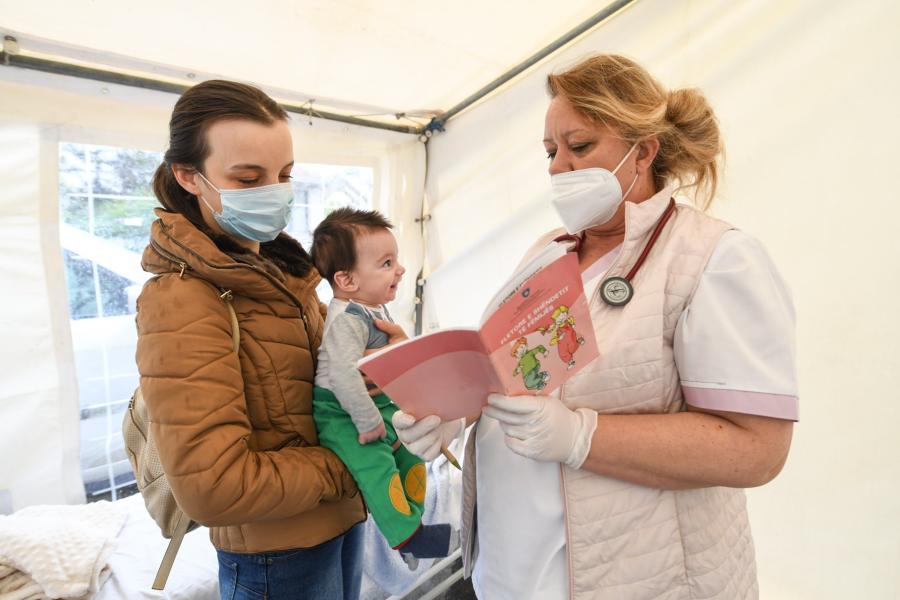
A High Level Committee for the project was held on March 4th, which provided a forum to share key findings and lessons from the project five months into implementation, including with high level observers from the Ministry of Health, Ministry of Education, and the Institute of Public Health. The discussions focused on the new realities for schools and the need to tackle amplified inequalities, as well as clear call for partnerships and innovation and redoubling renewed support for health and education system, which is deemed essential for driving forward efforts during the recovery process.
Follow the link to watch the video with highlights of the project: https://youtu.be/hPycKyIt-RM


